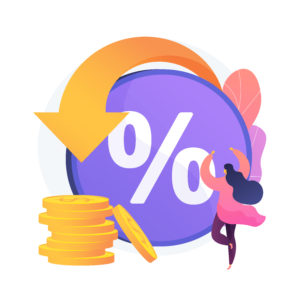Surcharge Fees and The Future of Payments
merchantsergrp
on
April 28, 2022
It is estimated that by 2024, 16.6 million mobile POS (mPOS) terminals will exist. That is because of the influx of mobile payment methods and the use of them by millennials and Gen Z’ers and will push for them. For retailers, these payment methods come with processing fees and some of them can be quite hefty.
In order for merchants to accept credit and debit cards, they must sign an agreement with the payment processing company. This company will then provide the merchant with the tools needed to process payments. When a consumer makes a purchase, uses the equipment to make a card purchase, the payment processor subtracts their service fees from the payment and then the net sale proceeds will be sent to the merchant’s account.
On a daily basis, customers will swipe, insert or tap their cards for purchases (or use a mobile device), and for each of these transactions the average processing fee is between 2% and 4%. Some credit card processors use an interchange-plus pricing model. This is where the processor separates the bank and credit card issues fees from the processor’s markup rates.
Card processors know that they are disliked due to their fees for credit card processing. As a result, some payment processors offer Zero Processing fees. Zero Cost Processing enables you to pass most of the transactional costs to your customers. You will still have to pay other fees such as the setup fee, monthly service fees, PCI compliance fees and chargeback costs.
Another route some merchants go is offering Cash Discounts vs Surcharges.
What is a Surcharge?

Surcharges are oftentimes called checkout fees. They are an additional fee that the merchants add to a bill or total when they use a card for payments. It is an extra fee, charge or tax that is added on to the cost of a good or service beyond the initial price of the item(s). This fee is in place due to the fact that each time a credit card is used, a percentage or fixed rate is tacked on to the merchants bill from their payment processor.
Example: Items cost with tax is $100 and the surcharge is 3% of that total, then the new total would be $103.00 including the new fee. However, if the customer is paying with a Debit Check card, then we would not be able to apply the 3% for the Surcharge program.
What is a Cash Discount?

A cash discount is the opposite of a surcharge. In this method, all items in the store will reflect a higher credit card price vs a cash price.
Example: Items cost with tax is $100 and the surcharge is 3% of that total, then the new total would be $103.00 including the new fee.
How do I implement Zero Cost Credit Card Processing?

- Verify that 0 cost credit card processing is legal in your jurisdiction (if you are in one state and your customer is in another, verify that it is legal in states that you will be working in).
- Make sure that there will be no contractual conflicts with your payment processor and/or financial institution.
- Find a reputable provider. (Schedule a call with us to learn more)
- Communicate with your customer base and inform them of the decision. Let them know that you have (or will have) new software in place and ensure that the customer-facing employees are aware of the changes as well. (training is key)
Why Choose Merchant Service Group LLC?

- Keep 100% of your profits
- No interchange fees and No transactional fees
- Once you sign up, you’ll be assigned to a personal account executive with 24 hour support.
- Experienced, No hassle set up and have approval within 24 hours.
- Top rated payment equipment (Equipment In-Stock with no Delays on Delivery)
- Cloud-based reporting, Service and support, and a 3 year warranty.
- Our platform allows a merchant to set up a zero fee, surcharge program using credit card equipment or online website.
